About CenterPointe Omaha
Welcome to CenterPointe Omaha, a leading provider of alcohol and drug rehab services. We offer a wide range of services to meet the needs of our clients, including inpatient and outpatient rehab, detox, aftercare support, and creative arts therapy. We are committed to providing quality care to all of our clients, regardless of their background or identity. We welcome everyone to our center, and we are proud to be a safe and welcoming space for the LGBTQ+ community, individuals with dual diagnoses, and those from all walks of life. If you or a loved one is struggling with addiction, we hope you will reach out to us for help. Thank you for considering us as you begin your journey to recovery.
Addiction Treatment Programs
Alcohol Rehab
In Nebraska, an alcohol rehab provides a combination of therapy and education to help clients overcome alcohol misuse. Alcohol rehab may include detox, inpatient treatment, and/or outpatient care. You’ll learn the roots of addiction and learn how to build a substance-free life.
Dual Diagnosis
When you have a dual diagnosis, you have mental health and substance use concerns. It’s important to choose a rehab in Nebraska that can treat both. A dual diagnosis program uses evidence-based approaches to help you overcome both your mental health concerns and substance use. This may include mental health medication, counseling, and more.
Opioid Addiction
Rehab in Nebraska helps clients find the motivation to make a change and gives them the tools to break free from opioid addiction and achieve long-term sobriety. In an opioid treatment program, you’ll not only receive treatment, but you’ll participate in activities, receive peer support, and learn how to have fun without substance use.
Adult Program
Those who join an adult program in Nebraska are given training in key life skills to help them with parenting, their career, and more. An adult program gives you the skills you need to overcome addiction and address the unique challenges of managing your work, relating to your family, raising children, and balancing a variety of other responsibilities
LGBTQ Friendly Rehab
Finding an LGBTQ+ friendly rehab in Nebraska can make all the difference in helping you overcome substance use. Along with traditional evidence-based treatment, clients may receive trauma-focused care, peer support, and classes in overcoming specific challenges.
Men's Rehab
If you’re a man struggling with substance use, consider a men’s rehab program in Nebraska. A men’s program gives you the skills you need to overcome addiction and address challenges such as family relationships, fatherhood, emotional management, and more.
Women's Rehab
A women’s rehab in Nebraska addresses the recovery needs of female clients and gives them the tools they need to succeed. A women’s program gives you the skills you need to overcome addiction and address your unique challenges, such as motherhood, building a career, having healthy relationships, and more.
Young Adult Rehab
Young adult rehabs in Nebraska help young people overcome substance use and learn new life skills. A young adult program gives you the skills you need to overcome addiction and address the unique challenges of transitioning from the teen years to adulthood.
Senior Rehab
Insurance Coverage
Medicaid
For those who qualify for Medicaid, using your coverage to pay for treatment in Nebraska can make rehab more accessible. Programs that accept Medicaid can offer any level of care, including detox, inpatient, and outpatient. Your out-of-pocket costs, if any, are likely to be very low.
Private insurance
Using private insurance is an easy way to pay for rehab in Nebraska. Be sure to contact your insurer to get coverage details, including what centers are in-network with your plan and what out-of-pocket costs you may be responsible for.
Self-pay options
Paying for rehab in Nebraska can be done in several ways, including self-pay. When you write a check, send money electronically, or use a medical loan, you have maximum flexibility in choosing the program you want. Payment arrangements may vary depending on the level of care.
Financial aid
How do you pay for rehab in Nebraska? If you qualify, consider using financial aid programs to pay for some or all of the costs of treatment. Getting a scholarship or grant can help you pay for any level of treatment, from detox to inpatient to outpatient care.
Medicare
Medicare can help pay for some or all of the costs of rehab in Nebraska. Keep in mind that Medicare plans vary, so it’s important to check on coverage information and to find out which treatment centers accept your coverage.
Military insurance
In Nebraska, military insurance is one of your options when it comes to paying for rehab if you’re a veteran or service member. Plans vary, so be sure to contact your insurance company to find out coverage details and what copayments or deductibles you might be responsible for.
Sliding scale payment assistance
How do you pay for rehab in Nebraska? If you are struggling with the cost, consider a program that has a sliding scale payment plan. By providing information about your income and family size, you can qualify for a lower fee for detox, inpatient treatment, outpatient care, and more.
Levels of Care
- 1
Detox Treatment
When you enter rehab in Nebraska, the first step is to allow the substances to leave your system, which is known as detox. Detox is often medically supervised, helping it be safe and as comfortable as possible. Medical supervision may include FDA-approved medication and other treatments.
- 2
Inpatient Rehab
If you want or need to focus on recovery without distractions, consider inpatient treatment in Nebraska. Some of the elements of inpatient treatment include individual and group counseling, skill-building, relapse prevention, and help with essentials like employment and housing.
- 3
Outpatient Rehab
During outpatient treatment in Nebraska, clients receive evidence-based treatment while living at home or in sober living. Outpatient treatment sessions generally last 60 to 90 minutes and may include discussing a specific issue, sharing wins and challenges, education about specific topics, or developing life skills.
- 4
Aftercare Support
During aftercare in Nebraska, clients will receive ongoing support that makes it easier to practice their new habits and maintain recovery. Aftercare may include connections to 12-step and other support groups, housing and employment resources, community recovery centers, and more.
Therapies
Creative Arts Therapy
The goal of creative arts therapy in Nebraska is to help you process overwhelming emotions in a safe way and create positive change. During treatment, the art therapist may ask you to draw specific things related to recovery, help you interpret your feelings, and guide you in building toward new habits.
Experiential Therapy
The goal of experiential therapy in Nebraska is to help you process your emotions and gain confidence in your ability to create positive change. During experiential therapy, you’ll work through activities that will help you work through past experiences and emotions. Afterward, you’ll have the tools you need to address problems and manage triggers in a healthy way.
Family Therapy
During family therapy in Nebraska, clients have a supportive environment to talk with family members about conflict and unhealthy behaviors that may trigger substance use. Family therapy is only one element of rehab treatment, along with activities, peer support, individual and group counseling, relapse prevention, and more. Together, all these methods support you in establishing long-term recovery.
Group Therapy
During group therapy in Nebraska, clients have a safe environment to share their struggles with others going through similar issues. Group therapy sessions generally last 60 to 90 minutes and may include discussing a specific issue, sharing wins and challenges, education about specific topics, or developing life skills.
Individual Therapy
Individual therapy in Nebraska is led by a professional therapist who talks to you about your specific experiences and emotions. Individual therapy is a normal part of evidence-based treatment programs, and may be a part of inpatient treatment, outpatient care, or both. Topics include processing past events that may have contributed to substance use, learning new life skills, and relapse prevention strategies.
Location
Contact CenterPointe Omaha
Top Drug Rehab Centers in Nebraska
-
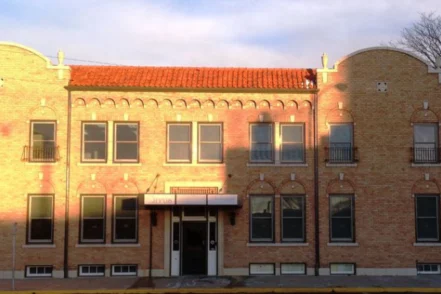 Nebraska
NebraskaCirrus House Inc
1509 1st Avenue Scottsbluff, Nebraska 69361
-
 Nebraska
NebraskaCenterPointe Campus For Hope
1490 North 16th Street Omaha, Nebraska 68102
-
 Nebraska
NebraskaValley Hope of Omaha
7703 Serum Avenue Omaha, Nebraska 68127
-
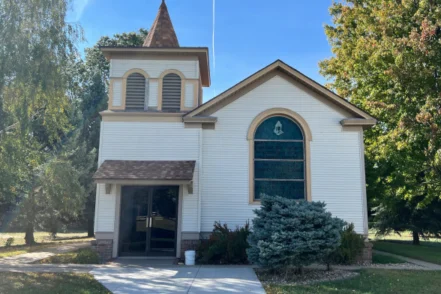 Nebraska
NebraskaValley Hope of ONeill
1421 North 10Th Street ONeill, Nebraska 68763
-
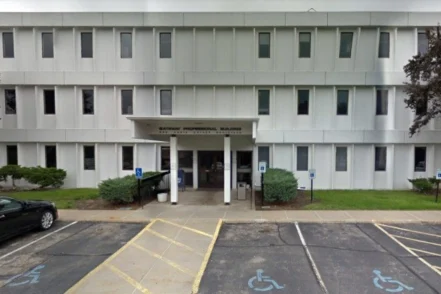 Nebraska
NebraskaAssociates in Counseling and Treatment
600 North Cotner Blvd., Suite 119 Lincoln, Nebraska 68505
-
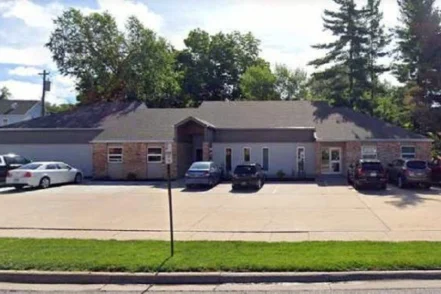 Nebraska
NebraskaHouses of Hope
1124 North Cotner Boulevard Lincoln, Nebraska 68505
-
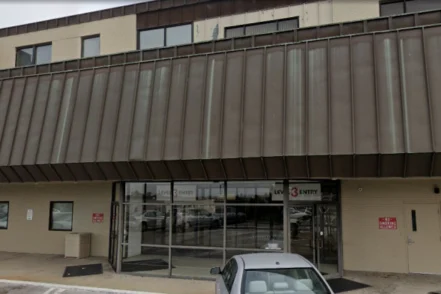 Nebraska
NebraskaBaart Programs
1941 South 42Nd Street, Suite 210 Omaha, Nebraska 68105
-
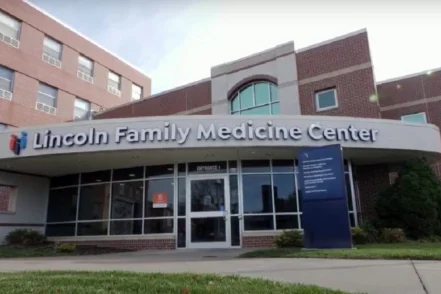 Nebraska
NebraskaLincoln Behavioral Health Center Valley Road
4600 Valley Road, Suite 200 Lincoln, Nebraska 68510
-
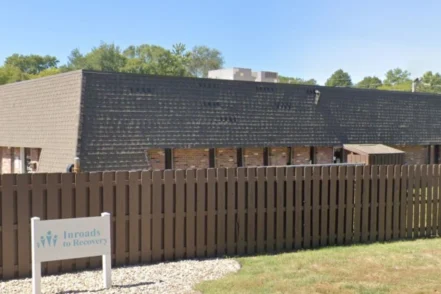 Nebraska
NebraskaInroads to Recovery
2808 N 75Th St Omaha, Nebraska 68134
-
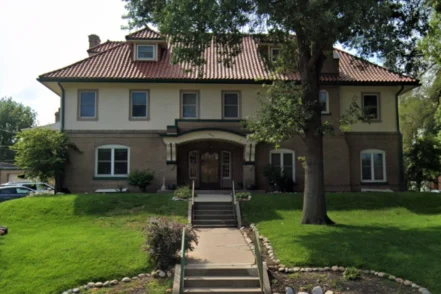 Nebraska
NebraskaArch Halfway House South 37th Street
604 South 37th Street Omaha, Nebraska 68105